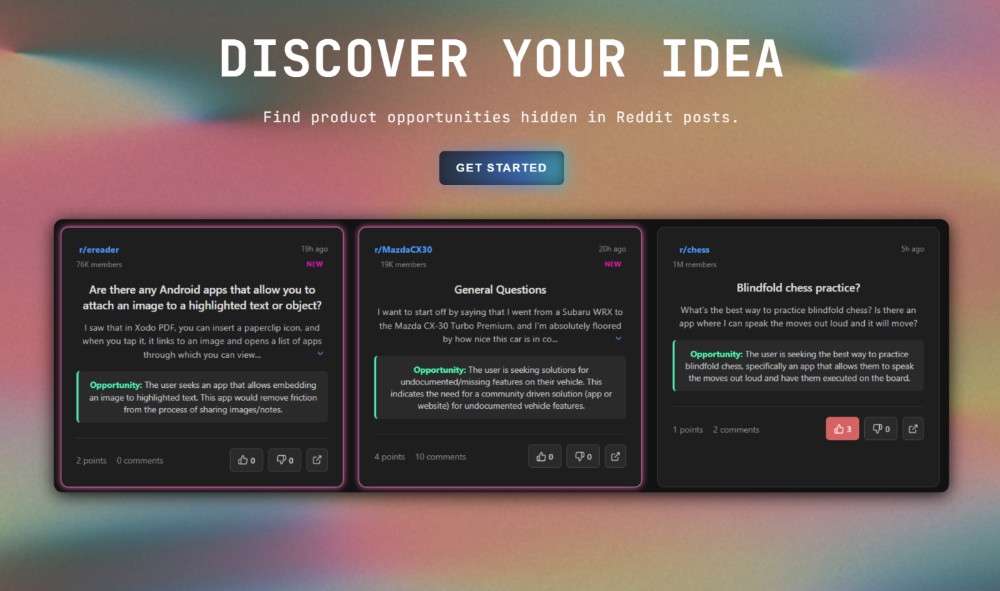How to find your next great and profitable idea, Part I: 23 ways + bonus (11 tools/resources to discover new ideas)

1. Scratch Your Own Itch
Solve a problem you have, especially one that feels niche but painful. This could be really difficult as many of us don't have any problems, especially hackers. But I believe, that we actually have problems, we are just used to theim in hard way.
Example
How many times you are stuck with a Git? You made some changes, tried to commit, and suddenly you see an error that you don't understand. You can try to find an answer on Stackoverlow, ask ChatGPT but it still may be hard and scary to follow their suggestions. So, what if you build a tool that...
- doesn't allow you to screw with Git
- show visually in simple manner what's going on (even if you a newbie with Git)
- teach you Git's basics
- convert your plain English in series of correct Git commands?
Advice. If you don't have any problems, talk to you relatives, friends, colleagues - don't ask them directly "What do you have a problem with?" but rather listen to their complaints and watch their daily activities.
2. Talk to People in a Niche
Especially those in boring industries — logistics, insurance, compliance, etc. May be you have a friend or spouse working in those industries, or you met them while using their services and saw them struggling with existing tools? Look at their websites, try their apps, and you will be surprised how bad and slow they could be.
3. Ask "Why is this still done manually?"
Find areas still stuck in spreadsheets or pen and paper. One of my friends that is keen on in flight clubs, found that most of the club's owners still manage their assets and members using paper and pen, many of them never thought it could be done differently.
Examples:
- apps for cleaning services
- veterinary clinic records (convert manually written records to the electronic versions)
4. Look for Hacks People Use
Temporary workarounds often hide product ideas. For example, you can read here and there the posts like "How I connect make.com with Notion to create a simple, private CRM" - this hack could be an idea for a "CRM for Notion". Look similar hacks on the Internet, in the Reddit subs, on Twitter, and other resources.
5. Explore B2B Software Graveyards
Find outdated software with loyal customers, build a better version.
Examples
Many small businesses run essential internal tools off Access or QuickBase — they can’t find modern replacements that are simple and flexible enough. So, it could be a simple visual database builder with views, user roles, forms, and reports. Targets businesses that want something better than Excel but not full dev tools.
6. Build for Trends
AI, remote work, creator economy, digital health, etc. Ride the wave. The trick is not just to build for a trend, but to build with the trend — by solving emerging problems it creates.
Examples
- AI prompt library for lawyers, HR pros, or therapists
- AI guardrails SaaS for enterprises — prevent LLMs from leaking sensitive data
- Loom + AI → Auto-summary and task extraction from video updates
- “Stripe Atlas for Creators” — LLC, tax help, payouts in one
- Micro-therapy SaaS — 5-minute sessions + journaling with AI summarization
- HIPAA-compliant messaging for small clinics — cheaper, cleaner Slack alternative
7. Use "X for Y" Formula
“Uber for boats”, “Notion for lawyers”, “Slack for churches” — surprisingly works. To make interesting combinations, try this free service: https://www.toptal.com/marketing/mergewords.
8. Check SaaS marketplaces
See what’s selling on platforms like AppSumo, G2, or Product Hunt. With services like G2 and Capterra, look for interesting (to you) categories and read the negative reviews. They will give you an idea of what people lack in those apps, what they complain about.
9. Reverse Startup Funding
Read what VCs are funding and try to build it leaner, earlier, or cheaper. Here is the list of YC-baked startups: https://www.ycombinator.com/companies.
10. Fix Something Broken in a Big Tool
A better Stripe dashboard? Cleaner Google Docs alternative?
Examples:
- a simpler Vercel or DigitalOcean (what if you can host your project in just 2 clicks?)
- a simpler database/project management
- a simpler Git.
11. Go to Craigslist Gigs, Upwork, Feverr
See what people are paying strangers to do. There’s unmet demand.
Examples:
- People pay $50 to convert PDFs to Excel → build a tool to do it instantly.
- Freelancers offering $10 gig for Instagram captions → make “AI social caption writer for influencers.”
12. Scroll Niche Forums & Reddit
Problems are often ranted about on /r/smallbusiness or HackerNews. Lurk in forums, subreddits, Discords, and Facebook groups. Look for recurring pain.
Example:
People in a Discord for indie hackers need better product launch feedback → build a “private launch feedback network.”
12. Browse Job Boards (but not for a job)
Look at what companies are hiring for — sometimes they need a tool that doesn’t exist yet.
Examples:
- Companies posting jobs for “Zapier automation expert” → build a no-code workflow library.
- 10 companies hiring “community manager” → create “Community dashboard SaaS.”
13. Search Twitter for “is there a tool that…”
This exact phrase often leads to gold.
14. See What People Complain About in App Store Reviews
Find the most hated part of popular apps.
15. Watch YouTube Tutorials
If someone made a 20-minute video to explain something, it's too complex.
Example:
Excel gurus hacking dashboards → build “mini BI tool for non-technical folks.”
16. Clone a Startup That Died Too Early
Some great ideas fail due to bad timing or execution. Give them new life. Where to find them? Check here:
Also, look at old YC startup projects: many ideas were ahead of their time.
17. Dream Journaling
Capture ideas that appear in dreams. Some startups started this way.
18. Monitor Product Hunt / IndieHackers / Twitter Trends
See what gets attention but is poorly executed.
19. Buy a Micro SaaS and Evolve It
Like from MicroAcquire or Flippa.
20. Build Where Trust Is a Big Problem
Trust issues = opportunity for verification or transparency tools.
Examples:
- Fake reviews plague Amazon” → you build AI-based review authenticity scoring.
- Freelancers ghosting → escrow + deadline-based payment app.
21. Make a Plugin for a Popular Tool
Shopify, Figma, Notion, Discord, Linear — they all have ecosystems.
Examples:
- Shopify plugin to detect duplicate SKUs.
- Notion AI plugin to summarize company meeting notes.
- Figma plugin to auto-generate button variants.
22. Observe What Others Think Is Too Small
Big markets often start as “toys.”
Examples:
- A Chrome extension that saves tweets → becomes Readwise.
- A silly avatar maker → turns into a SaaS for brand mascots.
- A simple file uploader can be a real product
- An online photo editor that can be embedded into a website
23. Use the “Do It Manually, Then Automate” Rule
Offer a service manually → turn it into software when you know the pain points.
Examples:
- Start a “product launch feedback” concierge → then build a SaaS to automate it.
- Manually match influencers and brands → later build a matchmaking platform.
Bonus: Tools for finding or generating ideas (some of them may have affiliate link that support us)
LeadBlooms
LeadBlooms: A curated list of users looking for SaaS solutions
This is a huge database of user requests and complains from users found on Reddit.
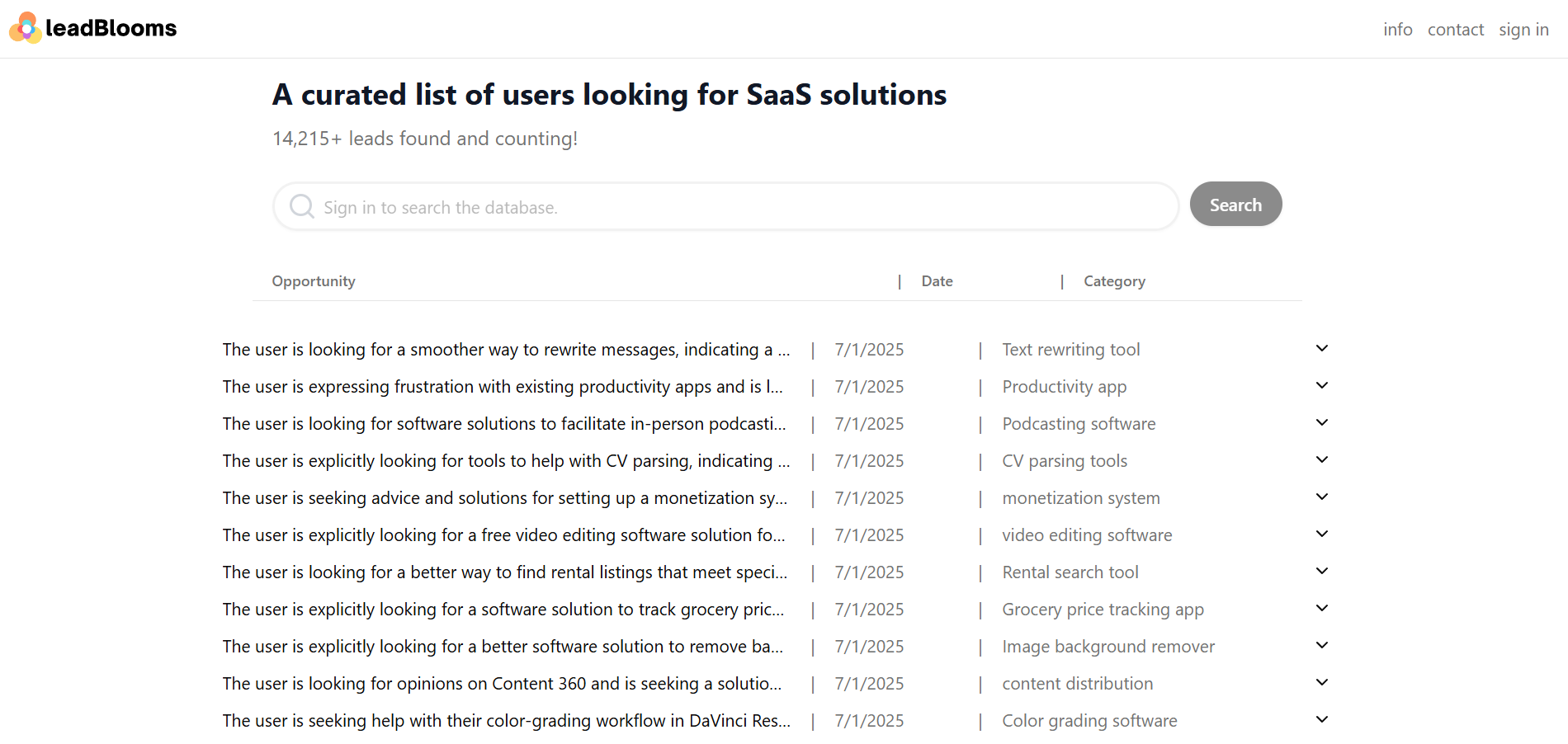
Problem Finder
Database of posts on Reddit where people complaining and asking about existing or non-existing solutions to their problems.
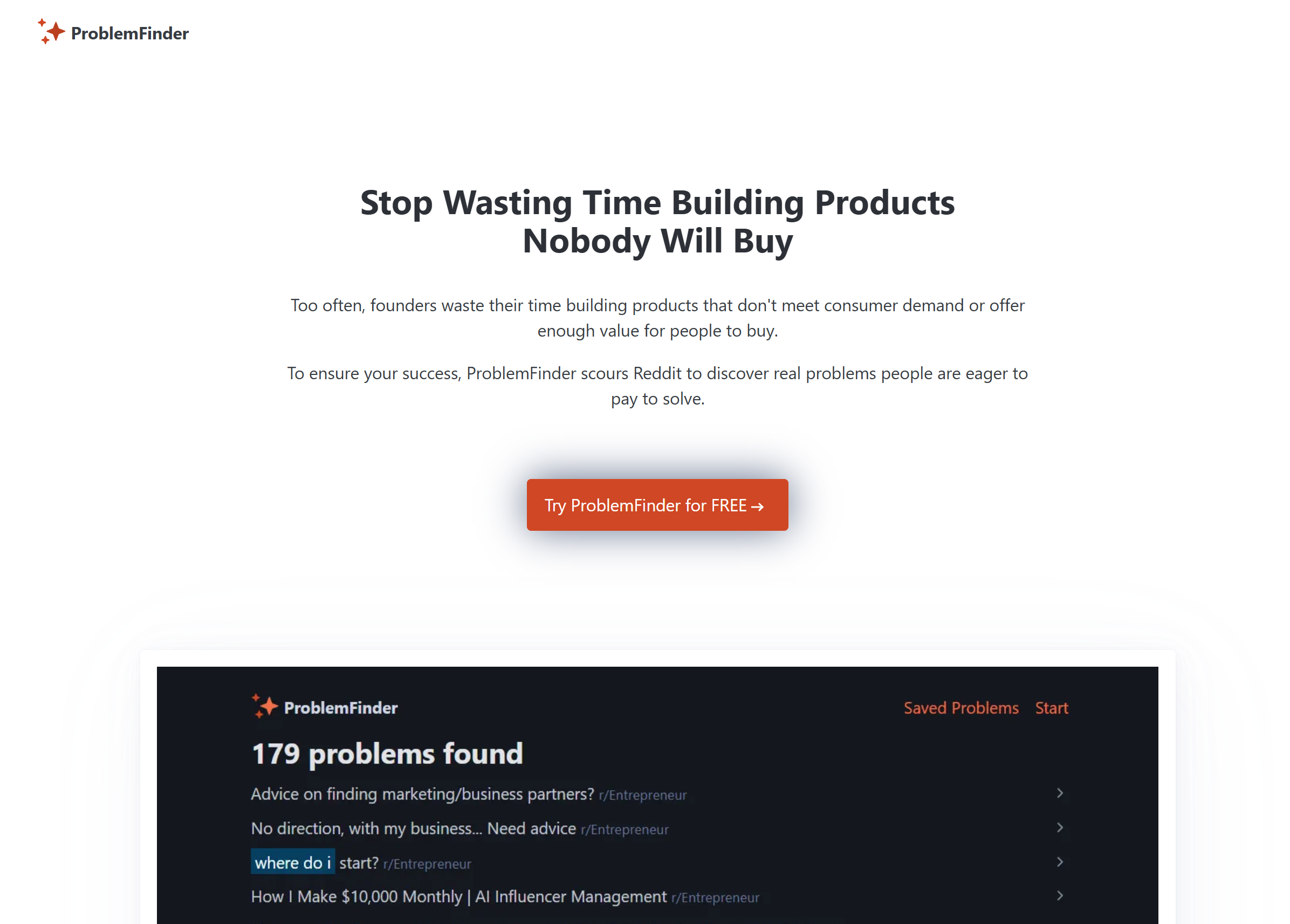
A list of ideas to build your next app

The search engine for Reddit painpoints
Search on Reddit for pain points, solutions to be built, ideas for your next app, sales leads.
To get 10% discount, enter this promocode on checkout: MARKETINGSTRATEGIES
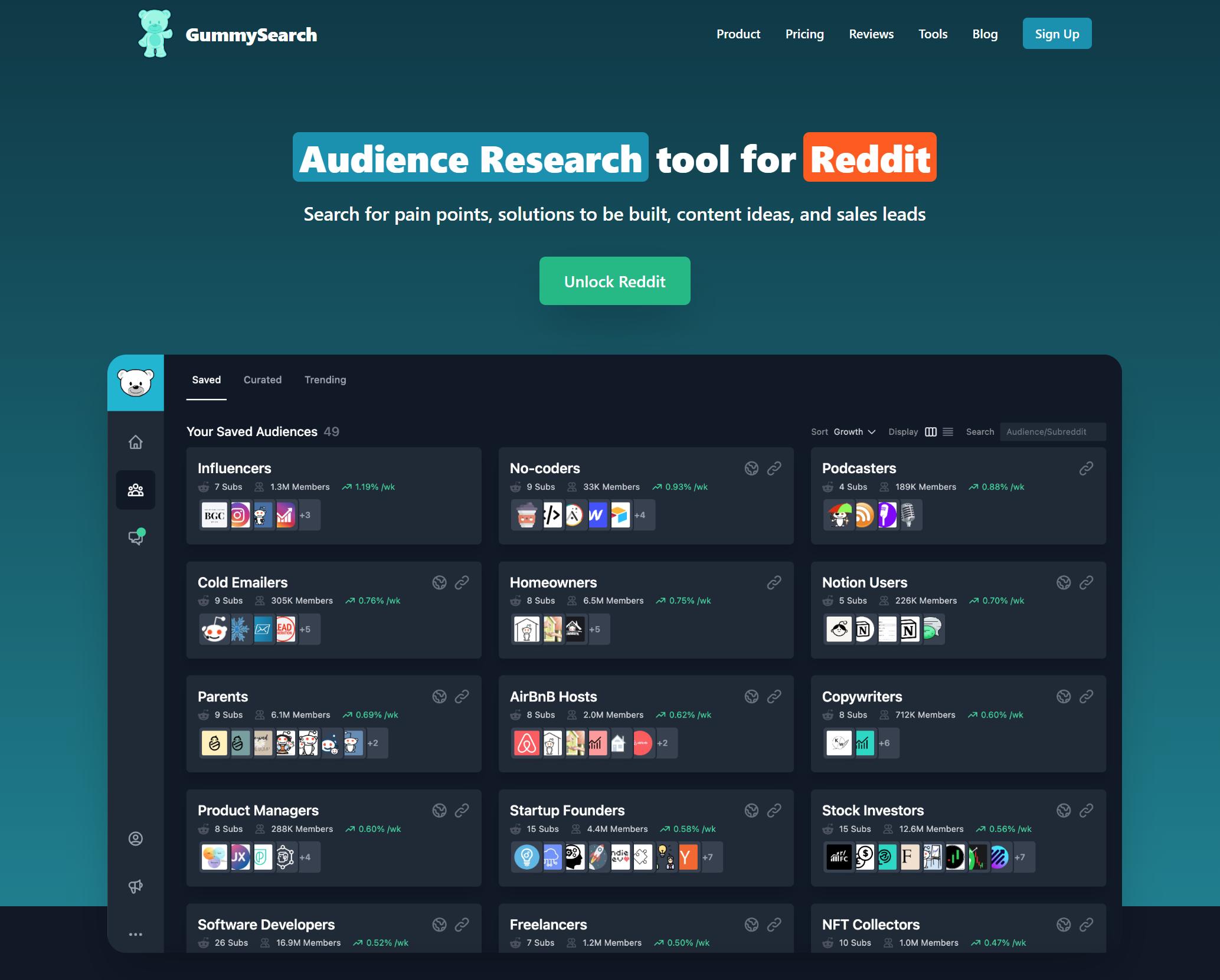
Audience search engine
Research and find your next audience to build a profitable app around it.
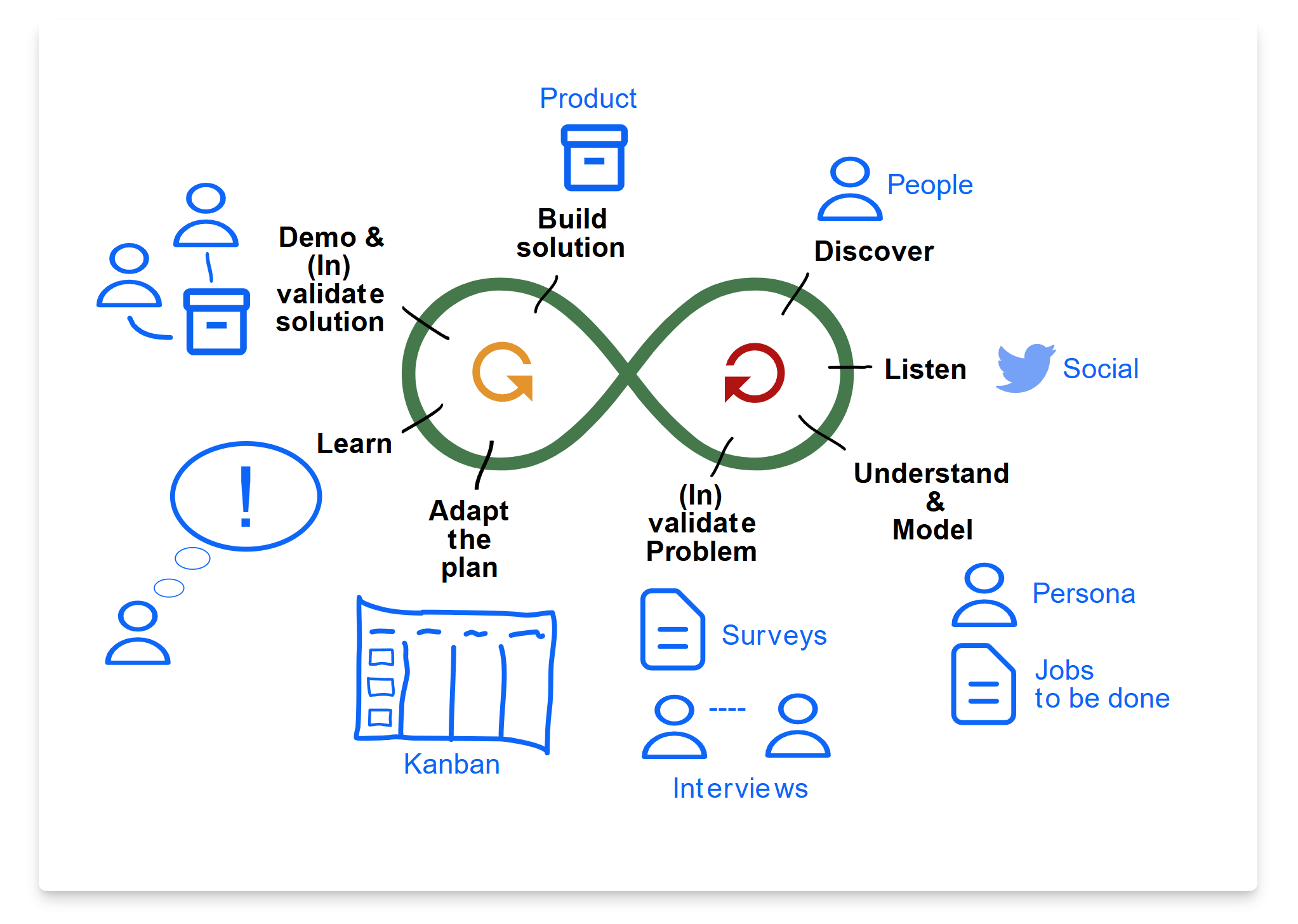
A huge database of micro SaaS ideas
List of 1000+ SaaS Micro Ideas
Micro SaaS ideas with possible revenue and marketin information
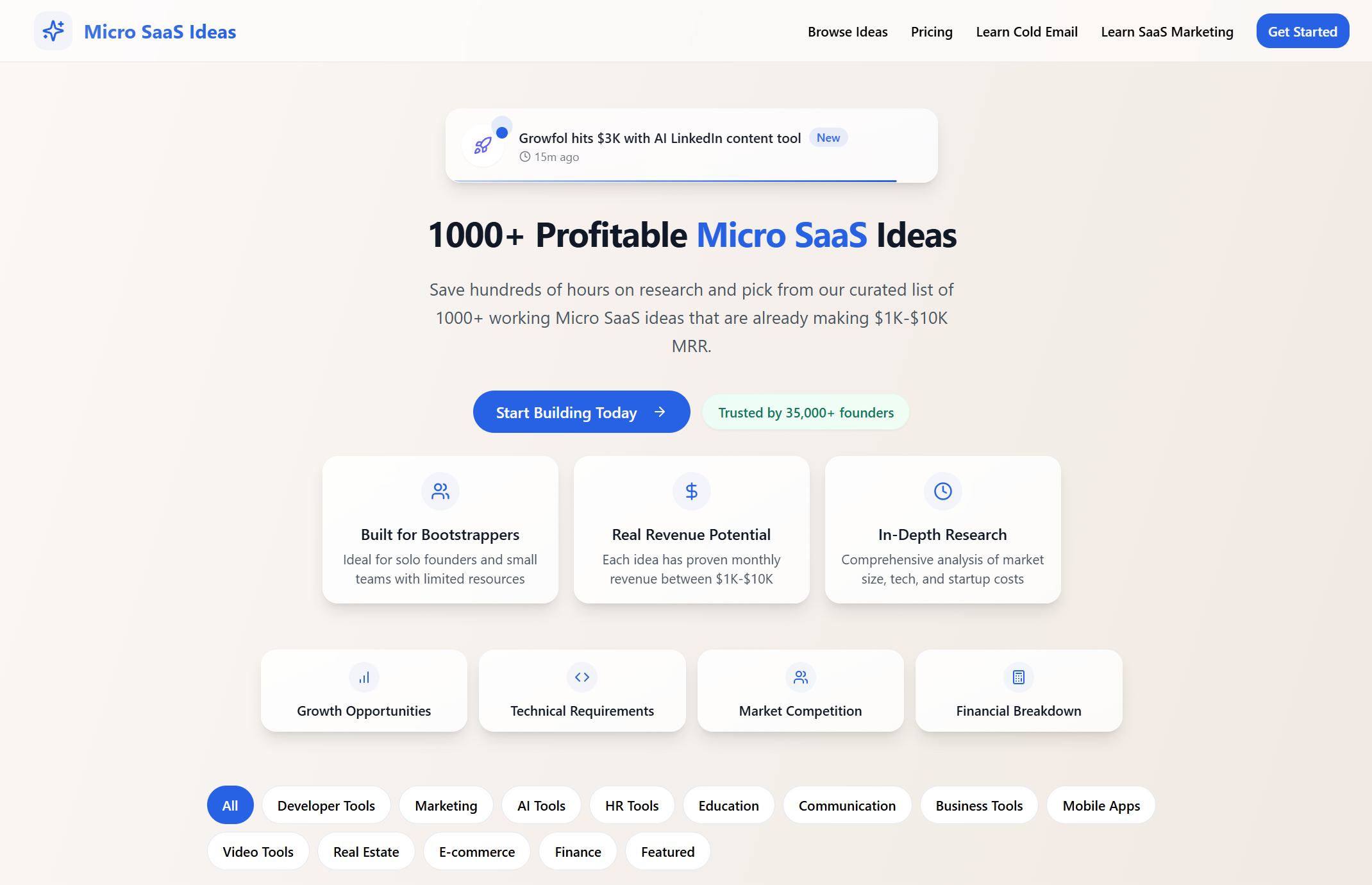
Exploding Topics
Discover hottest new trends and build your next profitable app.
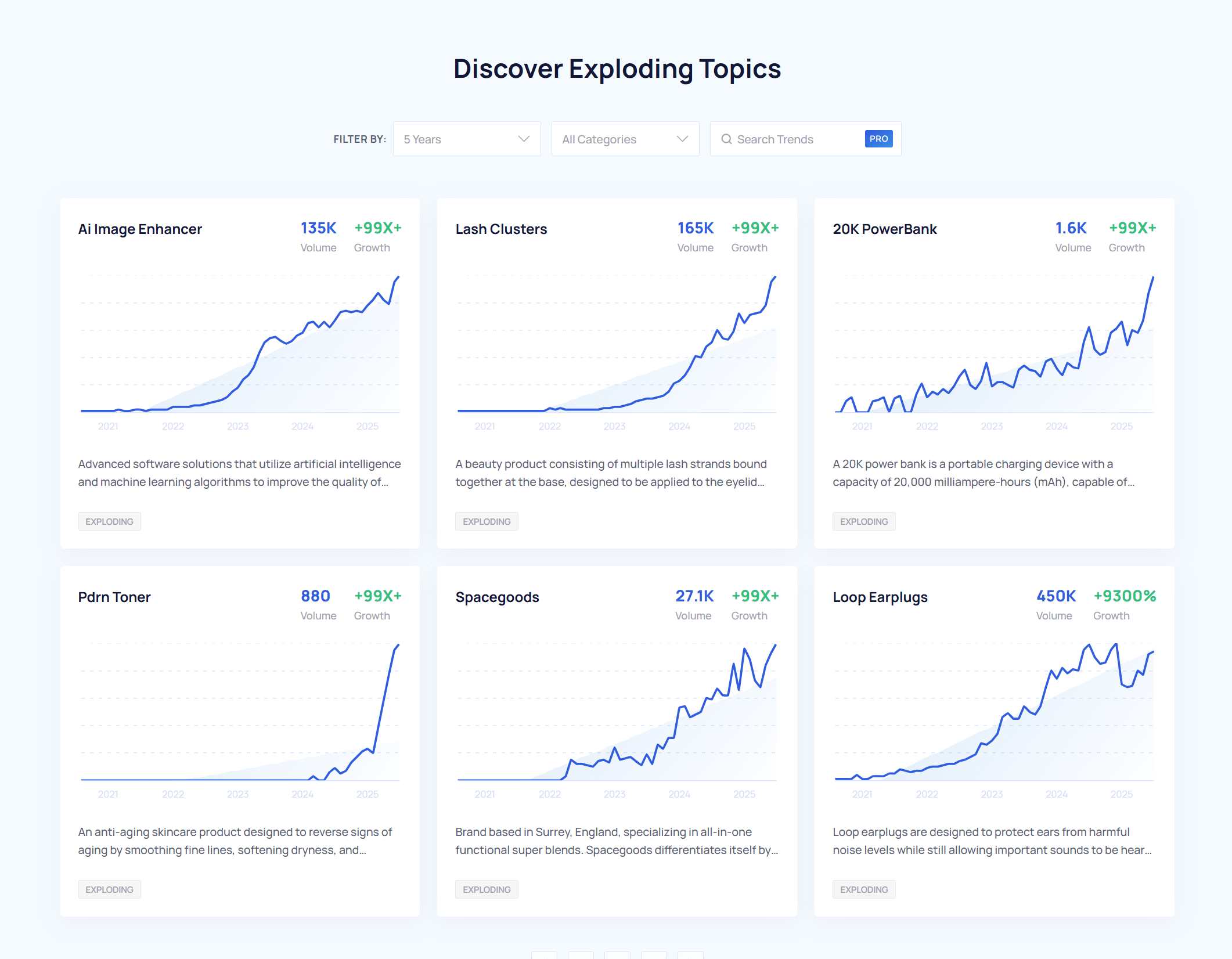
Google Trends
A free tool to discover new trends from Google.
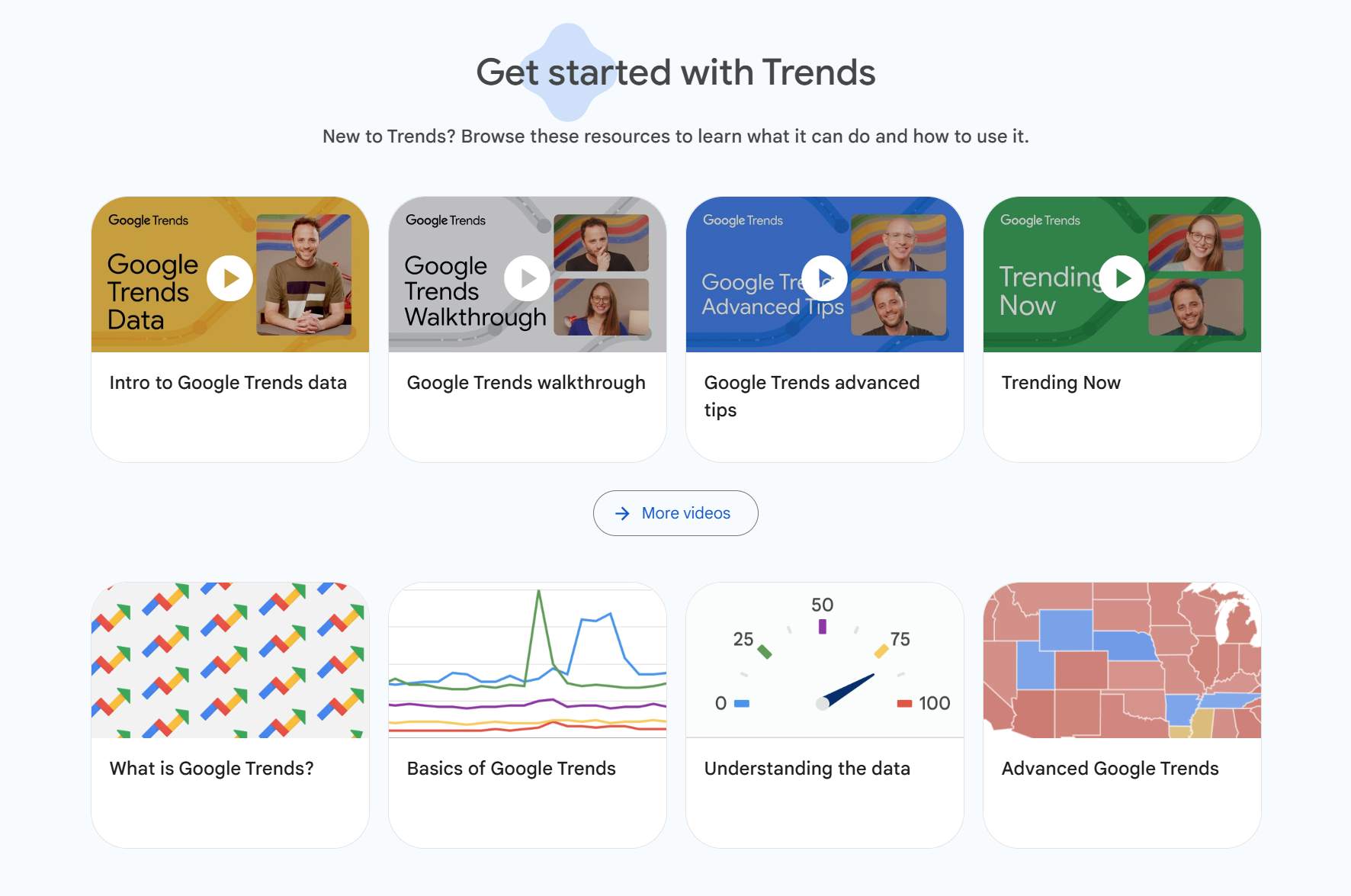
Book: 23 Ideas For Your Next SaaS

What's inside? The book contains 23 ideas of SaaS applications, eadh idea has:
- A problem that this SaaS app can solve
- Existing solutions
- Who are the end-users
- How it works
- Features
- Existing competitors and how to differentiate from them
- Ways to implement / components
- Technologies used
- Ways to monetize
- Challenges and obstacles
- A tip for SaaS founders
Random SaaS Problem
Random SaaS Problem - Unsolved pains from real users
Randomly picked SaaS problem that can be an idea for your next app.

The database of ideas collected from 100+ subreddits
Swipe through AI-generated startup ideas based on real pain points
Powered by AI trained on over 100,000 real Reddit posts collected from 100+ subredits, where people share what frustrates them, what tools they’re missing, and what problems remain unsolved.
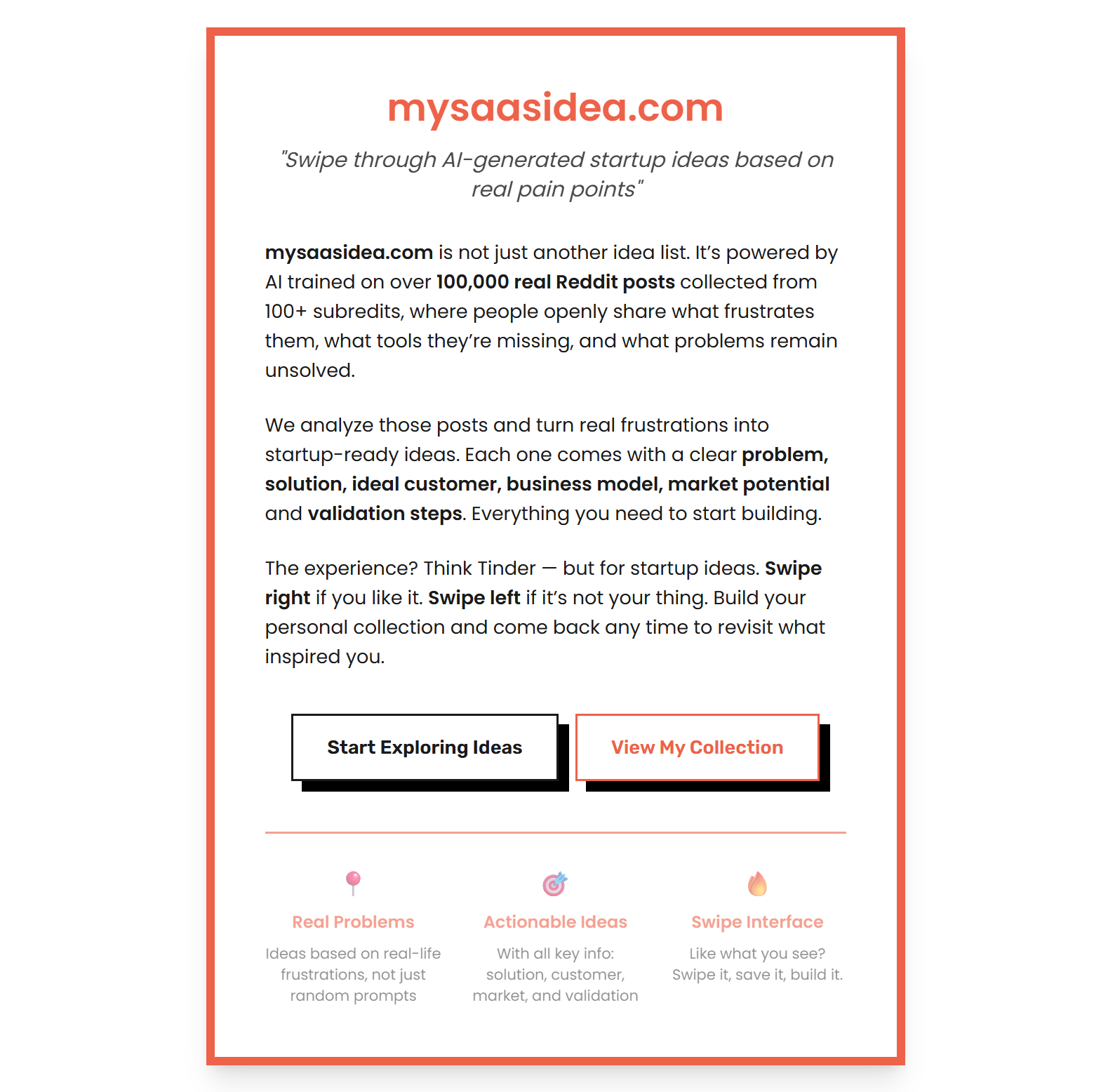
Discover Your Idea
Find product opportunities hidden in Reddit posts.
Great products solve real problems, but most problems hide in online chatter. We deliver fresh, hourly-updated ideas from an almost infinite pool—so you can focus on building what people want.
